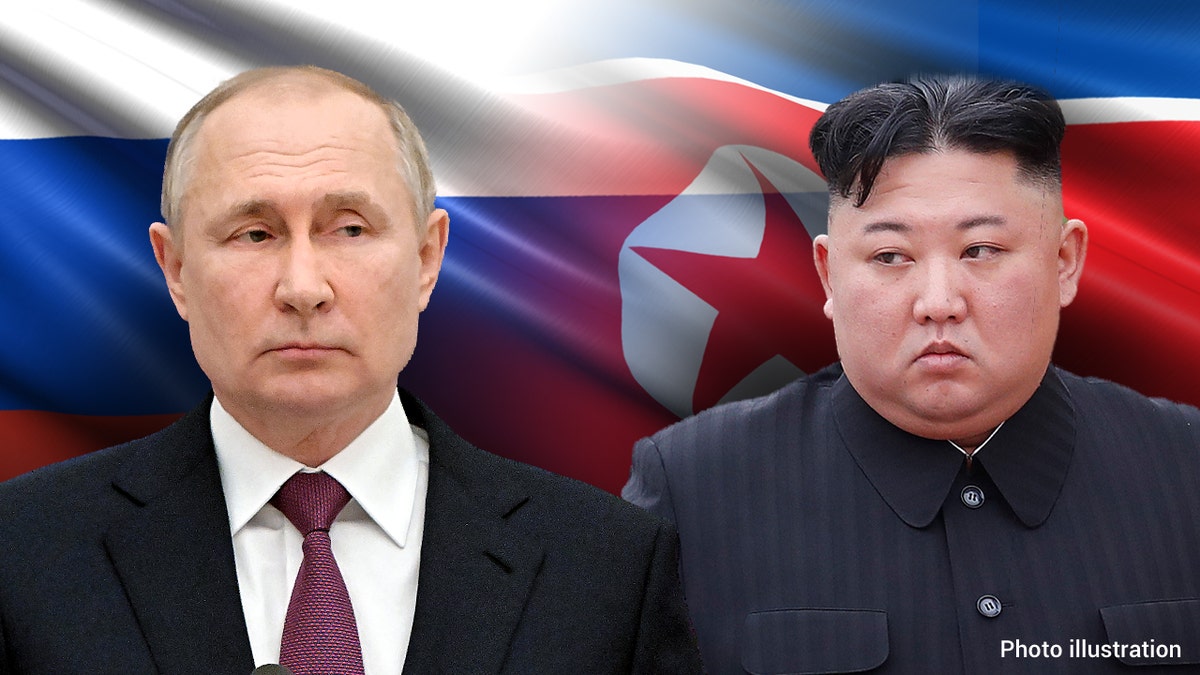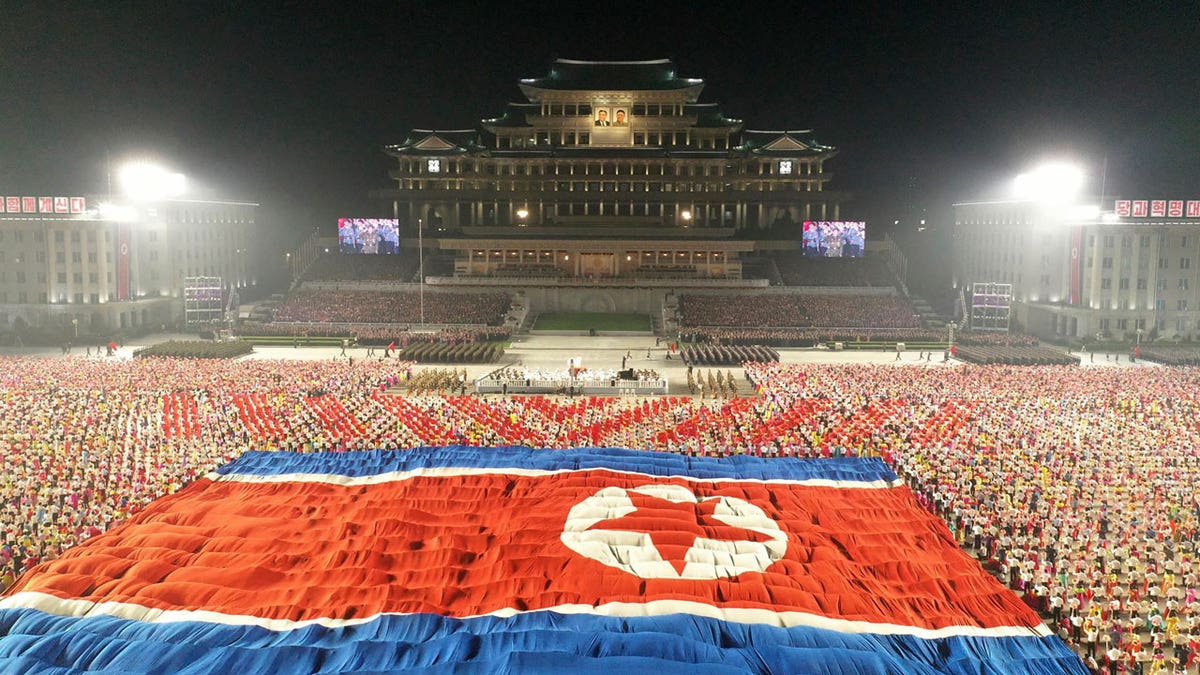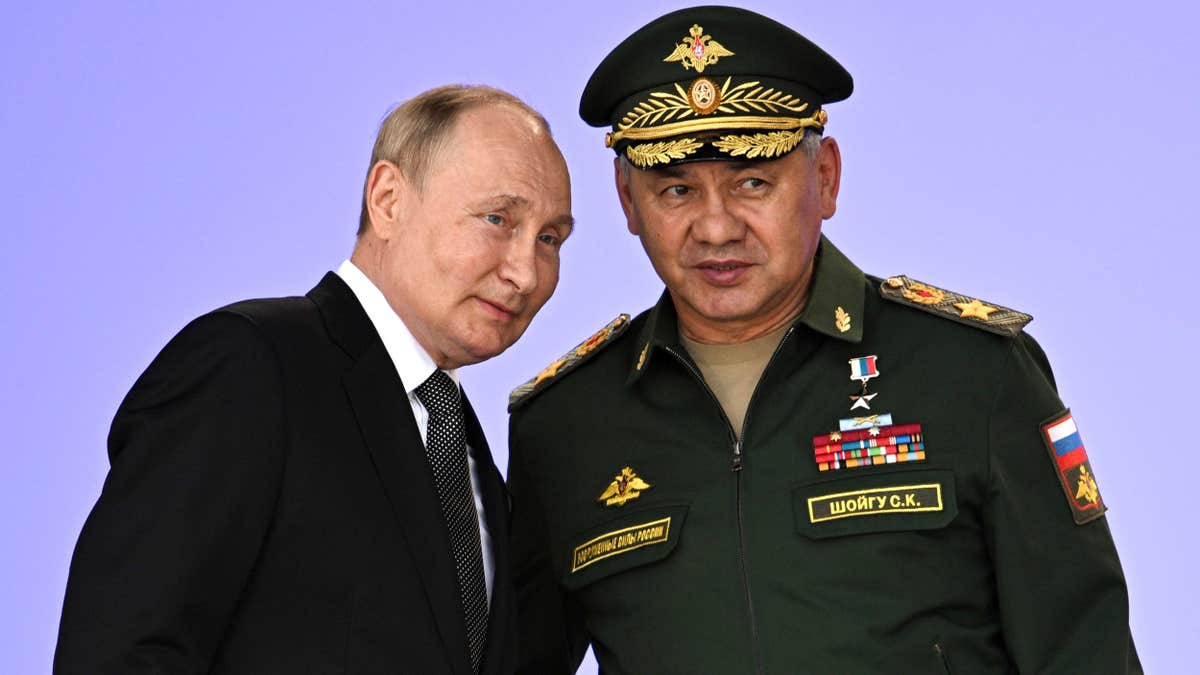Putin will 'only escalate' attacks on Ukraine as Russian rockets hit Kyiv: Rebekah Koffler
Former U.S. defense intel officer Rebekah Koffler joined 'Fox & Friends First' to discuss the latest on the Russia-Ukraine war as rockets hit Kyiv for the first time since June.
There is a Russian saying "This is not a coincidence, Comrade," that could describe the current environment in which North Korea and Russia, America’s most aggressive adversaries, are ratcheting up hostilities amid President Biden’s warning of a nuclear Armageddon last week.
On Sunday, Kim Jong Un completed a two-week-long tactical nuclear training operation in which Pyongyang, North Korea simulated nuclear strikes on potential U.S. and South Korean military command targets amid joint U.S.-South Korean naval exercises, apparently to "wipe out" enemies. Meanwhile, Russian President Vladimir Putin has unleashed a massive bombardment on Ukraine, in a likely retaliation for the bombing of the Crimean bridge, which Russia views as part of its territory and a critical supply route for Moscow. This escalation follows his disturbing warning last week that Russia will use all means in its arsenal against adversaries, emphasizing that he was not bluffing.
This was followed by an aggressive speech in which he blamed the U.S. for setting a nuclear warfare "precedent."
On Saturday, North Korea fired two short range ballistic missiles, in the seventh round of weapons tests in the last two weeks. This prompted Japanese Prime Minister Fumio Kishida to instruct his officials to speed up the collection and analysis of intelligence on these tests and prepare for any contingencies. The Joint Chiefs said South Korea’s military also beefed its surveillance posture to ensure readiness in close coordination with the U.S., this as the nuclear-powered aircraft carrier USS Ronald Reagan battle group that had participated in the joint naval drills with South Korean forces returned to the area angering Pyongyang.

Following Russia's invasion of Ukraine, Vladimir Putin and Kim Jong Un's relationship has become closer. (Getty Images | istock)
The Ukraine war has boosted the Russia-North Korea alliance, which has been growing for the past several years. One of the few countries that has recognized Ukraine’s breakaway territories as Russian, North Korea is selling Russia "millions" of artillery shells and rockets, according to the White House, as Moscow is depleting its weapons inventory in the eighth month of the devastating war.
In August, Putin and Kim exchanged laudatory letters to each other in which they vowed to expand comprehensive bilateral relations with common efforts. Putin expressed interest in helping Kim stabilize the Korean peninsula and the Northeastern Asian region. Kim noted that the relations between the two nations have transformed into a "strategic and tactical cooperation," helping counter "hostile military forces," a veiled reference to the United States and NATO.
Both Russia and North Korea view the U.S. as their mortal adversary, with both regimes having concluded that nuclear weapons are a usable battlefield capability and the only way to deter the U.S. and NATO from intervening in what they perceive as their respective regions and internal affairs, Putin in Ukraine and Kim in the Asia Pacific he views the whole Asia Pacific region as his internal affairs.
NORTH KOREA SIDES WITH RUSSIA IN ANNEXATION OF UKRAINE

A huge North Korean flag is displayed during a celebration of the nation’s 73rd anniversary at Kim Il Sung Square in Pyongyang, North Korea, early Thursday, Sept. 9, 2021. (Korean Central News Agency/Korea News Service via AP)
Putin and Kim’s combative style and high-risk tolerance for using potentially catastrophic means to challenge Washington's dominance and power projection in the world are making the current situation ever volatile. Both regimes, being under severe sanctions, have concluded that their relationship with the West is irreparable, given the diametrically opposing worldviews governance styles – authoritarianism vs pluralistic society – between the U.S. and NATO on the one hand and Russia and North Korea on the other. Additionally, Kim has accelerated the pace of missile testing to historically unprecedented levels and increased atomic bomb manufacturing, having reached in March the capability to strike the U.S. homeland with a full-range intercontinental ballistic missile.
The newly forged Putin-Kim alliance is a deeply concerning development for Washington's security. Russia has the world’s biggest nuclear arsenal and is the only country that has the capability to destroy the homeland in a strategic nuclear strike.
North Korea’s march to acquire a capability to launch a nuclear strike on the United States is something the deputy assistant director of the CIA’s Korea Mission Center called "very rational" rather than crazy. The CIA official explained that this is how Kim seeks to deter war with the U.S. rather than fight it.
In April, the deputy head of the North Korean committee on space technology told Russia’s TASS news agency that Pyongyang was interested in developing cooperation with Russia on the "peaceful use of outer space."
Adversaries like Iran, North Korea and others routinely use the phrase "peaceful use" as cover for acquiring dual-use technologies – space, cyber, nuclear – to in order to develop indigenous military grade capabilities.
CLICK HERE TO GET THE OPINION NEWSLETTER

Russian President Vladimir Putin vows to strengthen Russia's military cooperation with its allies at the Army 2022 International Military and Technical Forum in the Patriot Park outside Moscow on Aug. 15, 2022. (Sputnik, Kremlin Pool Photo via AP)
On September 8, North Korea passed a law on nuclear forces policy which codified its mission as that of "defending the sovereignty, territorial integrity and fundamental interests of the state, preventing a war on the Korean peninsula and in Northeast Asia and ensuring the strategic stability of the world."
Whether Putin and Kim synchronized their provocative actions and hostile rhetoric last week is irrelevant. However, having two potential flashpoints caused by two of our most combative adversaries in two separate regions may overload the Biden administration’s crisis management ability as it is already facing a whole host of problems, on the domestic and international fronts. With multiple combat drills involving numerous armed forces and high-tempo missile tests, it also multiplies the risk of miscalculation, sparking unintentional kinetic confrontation.
CLICK HERE TO GET THE FOX NEWS APP
Air Force Gen. Glen VanHerck, who heads up the U.S. Northern Command and North American Aerospace Command, which is in charge of protecting the homeland and Canada from missile strikes, aptly summarized the threats presented by Russia and North Korea. In March, he told the Senate Armed Services Committee that in the coming few years [the North Koreans] could exceed my capacity and capabilities."
A year earlier, Gen. VanHerck stated that Russia...remains the most acute challenge to our homeland defense mission" and warned that it is "rehears[ing] strikes on our homeland."











































